On April 19, 2021, Abuchi Peter Ugwu was appointed as the CEO of West Africa’s premier record label, Chocolate City Music. Chocolate City has been the home to a range of successful hip-hop artists from M.I. Abaga, who served as the company’s CEO from 2015 to 2019, to Jesse Jagz, Ice Prince, Dice Ailes and Blaqbonez. Chocolate City is undoubtedly one of West Africa’s most prominent and most successful record labels to date. However, the Chocolate City journey hasn’t always been a smooth one, and the record label has been the subject of controversy in the past, for instance, the infamous legal tussle between the record label and former signee, Brymo, in 2013.
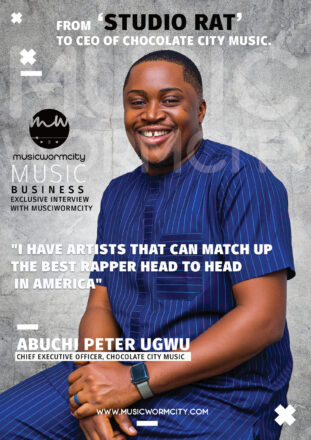
Self-professed music enthusiast, Abuchi Peter Ugwu has been part of the team at Chocolate City Music for over a decade, having begun his unlikely journey as a ‘studio rat’ and a sound engineer circa 2008. Ugwu has a number of successful projects in his bag, having mixed and mastered numerous hits including Oleku, Nobody Test Me, African Rapper and even Davido’s debut hit single Dami Duro. He was appointed as the Head of Business Development for Chocolate City Music in 2015 and became the Vice president for Bean Creative Agency, a subsidiary of the Chocolate Group. He worked alongside Jude “M.I.” Abaga as the COO of the company until M.I.’s departure as label head in 2019.
Abuchi Peter Ugwu has always been a lover of music and as one of the pioneers of the Afrobeats, he has a lot in store for the record label. In an exclusive interview with MusicWormCity, the renowned artists’ manager and businessman explained how he went from being a ‘studio rat’ to the CEO of Chocolate City Music. The new CEO also shared his plans for the record label in the years to come. Catch the exclusive interview below:
Can you tell us a bit about you?
My name is Abuchi Peter Ugwu and I am the CEO of Chocolate City Music and Bean Creative Agency, the sister company to the music company under the Chocolate City Group umbrella. I fell in love with music a long time ago. Bob Marley once said, “When music hits you, you feel no pain”, and that quote sums up my feelings towards music. I come from Enugu but I was born and brought up in Jos. I went to school in Jos and I fell in love with music in Jos. I used to be a sound engineer, which I learned by watching, as a studio rat. I went into production a bit then entered management. I was in music management for about 12 years before I moved to running an agency owned by Chocolate City. From there I moved to managing the music business.
Tell us a bit about the agency you are running.
I’ve been running an agency for about two years called Bean Creative and what we do there is to bridge the gap between the creative sector – people that create content – and every other sector. 70% of Nigerians are youths and the normal white-collar jobs don’t work for them anymore, so you find a lot of people in the creative sector. The people that shoot movies, the actors, the influencers, the songwriters, all those people. We created this agency to help us manage these people. We have a few clients here and there, some of the clients we provide influencers to them and we have some other clients for whom we provide entertainment talents for all their activations. Every year we do about 200 activations. We have tools in the market like ‘humans’ that help you vet influencers in real-time and work with up to a thousand influencers at once.
Can you talk about your transition from the creative department to the music department?
I sort of feel like they are the same thing because you manage creatives and our music business is more or less like we are capitalizing on one part of the products that these creatives create which is music. So my job here is to create the best content, manage the process, create it at the minimum possible cost, get it to as many people as will listen to it and monetize. So the key job for me is to create value for that talent and the stakeholders involved.
When and how did you first become involved in the music industry?
I became involved when I was 16 or 17. I wanted something to do with my life and the next place to go to was the studio near my house in Jos. That was where I met Jesse [Jagz] and M.I. It was just a studio where young people used to come and hang out so it was something to pass time. That was how I fell in love with music.
So how did you climb the ladder at Chocolate City Music to become the head of the company, and were you expecting it or did it take you by surprise?
First things first, I had to give room to hard work because I started in Chocolate City as a sound engineer. I mixed Jesse’s album, which was one of the first projects I did, Ice Prince’s album then M.I.’s. This was about 10 years ago and that was when I started getting involved with Chocolate City, then I became M.I’s personal manager and M.I was an artist under Chocolate City. From there I became a business manager under Chocolate City, then M.I was the CEO at a point and I was the COO. I ran the business development. I was in charge of the business and the income. When M.I resigned as the CEO, I left to start the agency and then came back.
Were you expecting the role?
Funny story! I was invited to a meeting with Audu, Paul… then the meeting didn’t go as planned. After the meeting, I took my phone and called Paul. Paul is the co-founder of Chocolate City, one of the owners of the company. I called him and I said ‘I want to run the company but you guys have to resign’ and he was like ‘why?’ and I said, “I think you guys are tired” and we had that conversation and that’s how I got the job.
Wow, that’s a very bold conversation. What skills do you possess and believe will help you take Chocolate City into a new era?
With the music business at Chocolate City, one skill I possess is the people skills and the ability to create value for people. I feel like this young generation gravitates towards value.
Like you said, there are a lot of emerging creatives in the music industry, lots of record labels, people doing different things, promoting themselves in unique ways… So apart from your ‘people skills’ what do you possess that you believe will take Chocolate City to the next level?
First of all, what I have is my experience in music. I think we have to go back to the fundamentals of what this business is about. What’s the business? Our business is to create talents and to create the content that provokes. When you heard ‘Oleku’, that content provoked a feeling. When you see M.I. perform, there’s a brand that provokes. So it’s like going back to the basics by creating those brands, content that provokes the imagination. Sound engineering is one of the hardest jobs to do because, at the end of the day, they don’t get the glory but they clean up the sound and make it great. I have that experience and wealth of knowledge from that. The second thing is that having been in places that have created so much value for artists, I know how to create value for them. Because at the end of the day, you hear a lot of artists leave and there are problems here and there, and they leave because there’s just no more value for them in this system. The last thing is the people’s business and relationship. I think it’s very fundamental in the music business because if I work in the FMCG like I’m selling soap or something, there’s a product. The product has no feeling – you can toss it. But when you’re working with an artist, you have to understand that the artist has a life, the artist has people depending on them, has emotions and feelings. So understanding people is very important and that is something I understand to an extent.
You mentioned earlier that some things were not being done correctly and you just wanted to do something different. Could you share what those things were?
For me, the Chocolate City I fell in love with was a young company that everybody was so happy to come to work for. Then I saw the company moving from that to a company that was more rigid, more structured, more ‘this is how we do’. I was reading something about Netflix where the CEO was like, everybody can work from home, you can work in South Africa, you can work here and there and it is this same structure that Spotify applied. It’s just creating that environment where people can be creative. For me, the company was losing that. I asked myself, ‘if I had a son, would Chocolate City be the best place for him to work?’ and the answer was ‘No!’. This is not the company I sort of invested in and I really want that to change.
Can you give us an idea of some of the changes and strategies you are planning to put in place?
Firstly, I will work on the staff. We have to create an environment where people can create freely because for you to put out an album you have to create 100 songs then pick at least 10 or 15 songs. So I want to create an environment where young people can create without the fear of being penalized. Secondly, we are just tired of playing catch up, so moving forward we want to attack and not defend. People used to say we were very conservative, but I feel like there is room for improvement. We need to find a balance between attack and defence.
What do you think the future holds for Chocolate City Music?

I think the future holds a lot. For example, 70% of the Nigerian population are youths. Everybody I know has a family member or relative that sings or knows someone that sings. That person that sings needs someone to take them from A to B to C and that’s where Chocolate City comes in. Moving forward, I think it’s high time we export what we create, the music. Afrobeat is a huge thing, so how do I export afrobeat from Nigeria to the world? But Nigeria is more than just afrobeat. I have artists that can match up the best rapper head to head in America. Whatever the genre of music is, it’s high time we unbox ourselves from this category. I feel Chocolate City is the label that will help to bridge that gap.
Should we be expecting lots of signings or partnerships from Chocolate City?
We should be expecting a lot from Chocolate City because the music model is changing. We are going to be at the forefront of innovations. So we’re going to have a lot of artists. At the moment, we have a lot of artists that are signed but you don’t see Chocolate City in front of their name because, at the end of the day, it’s creating the catalogue for Chocolate City to monetize and share value for the artists and shareholders. So moving forward, we’re going to have a lot of signees. We have Blaqbonez – he just had the number one single and we’re moving. So there’s a lot. Next year and upper year will be our years.
You mentioned that artists don’t really stay under a label for a long time. Could you share a bit more light on that?
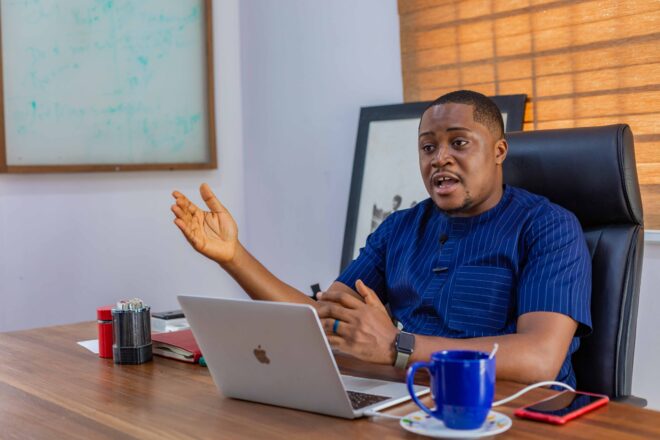
Back to my analogy about me working with people, I always tell all my staff that artists have three stages. The first stage is ‘Dobale’, meaning, I see you, I lie down. The second stage is ‘I’m your mate now’, in this case, the artist has blown and when you call them they don’t pick up. The third stage is the ‘fuck you!’ stage. The artist doesn’t send you again at this stage. And in all fairness with the artist, the artist has other things they’re dealing with. The artist showed up at the ‘dobale’ stage and is making N5000, he gets to a point where he’s making 100k, that’s ok, then he gets to a stage where he’s making 2 million Naira a week… On the corporate ladder, for you to be making 2 million naira a week, you have to be a brand manager and have at least 10 years of track experience. Before you get to that point, there is a lot you’ve developed. But for us, before you get to that stage before you come and tell us ‘screw you’, let’s have the conversation. We ask you what you want to do and our job is to help you achieve your goals. Do you want to work in the music business? How do we create an imprint for you to cater to your sound? Do you want to monetize your brand by merchandising? So a lot of these conversations will take place.
Since your appointment as CEO of Chocolate City, have you faced any challenges?
Yes, a lot, starting from the ease of doing business in Nigeria. For example, hiring the right staff. Sometimes, you have a great staff member but another company is offering them the best to join them and it’s more than you can offer. Should you sabotage the process of letting them go or do you tell them to go ahead? That can be a challenge. Then COVID-19 came around. Most of our revenue comes from live performances and that has reduced to like one-tenth of what it usually is.
What was it like transitioning from a music producer and sound engineer to an artist manager and now are you happy with that change?
Hmm, I think being happy is relative. Some days I’m like ‘Yes, I made the call!’ and some days I’m like ‘What the hell am I doing?’.
Do you still do sound engineering and artist management?
Yea, so now I have a team that we’re creating in Chocolate City and their job is to focus on all the artists we have and the artists we have a good relationship with. I’ll use Blaqbonez as an example. The question we have to ask ourselves is how we can create a system where when Blaqbonez is tired of singing he’s good for life. What are his passions? He likes dying his hair; can I get a dye company to partner with him? Instead of selling the dye for 100 naira we can sell it for 120 naira and the 20 naira on top is his markup, then how many products can we move per quarter or per year. That’s where the management comes in and that’s what we are offering.
What advice do you have for people that aspire to be music executives?
The first piece of advice is to just start – just show up. Look for where to intern because what people see first is the artist and manager. For instance, we have 40 staff members that work here. Out of the 40 staff, we have lawyers, we have accountants, we have producers, we have sound engineers. Music is now moving to a tech space where you have digital engineers because every month when we get reports about our music, we want to know them, we want to know why they are buying our music, what’s the emotional side that our music is filling, in order to create more content to fit in. So in music, there is a whole range and you need to just get in. Even with doctors. Recently, I was asking someone why there is no insurance policy for artists if anything happens to their throat and they can’t make money? Or if someone faints at shows and they need a doctor. So, just show up!
Three fun facts about you that people don’t know?
- I’m a huge fan of coffee.
- I love animals but I hate snakes. I have a couple of horses, I have a dog, I have cats, I have birds.
- I can’t swim.
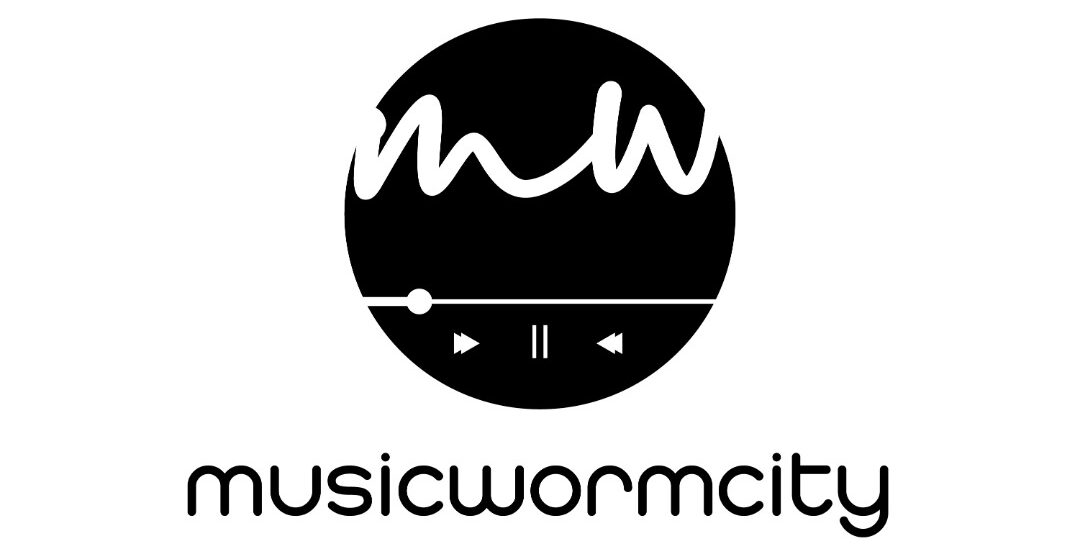

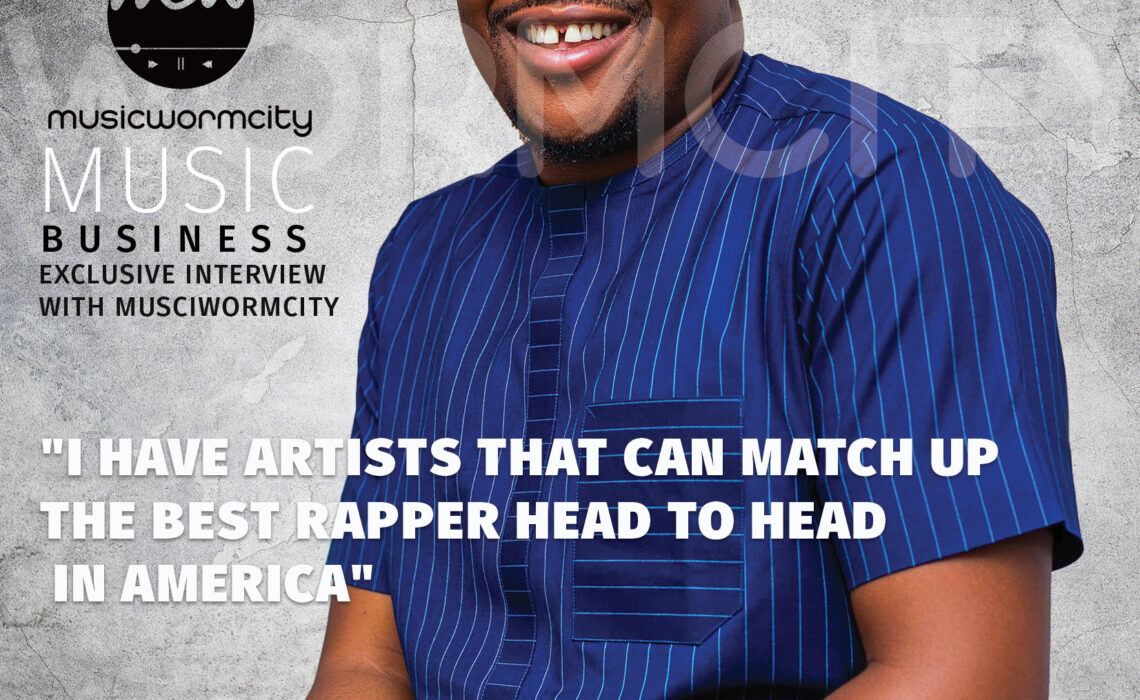
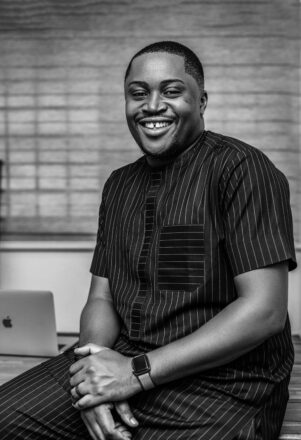
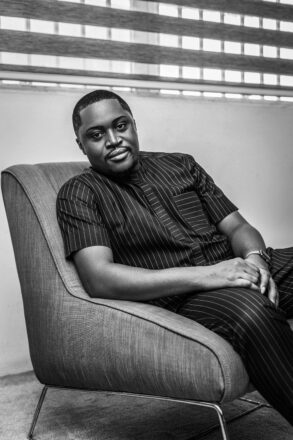
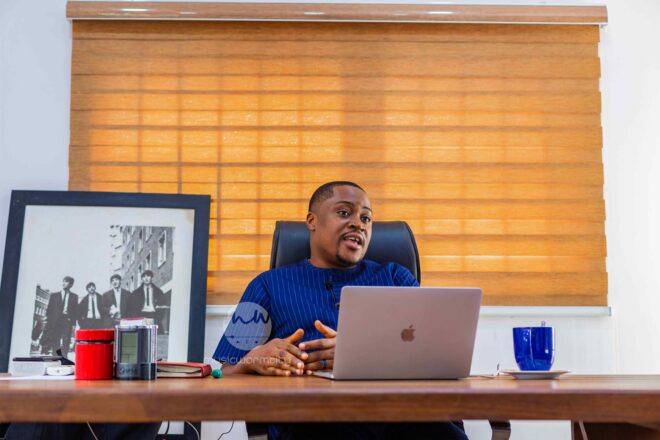
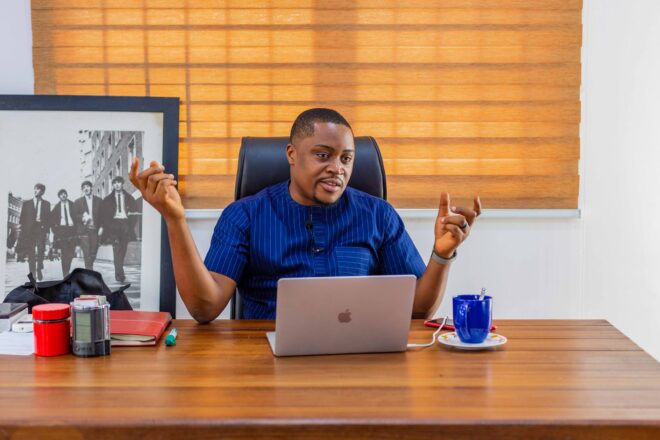

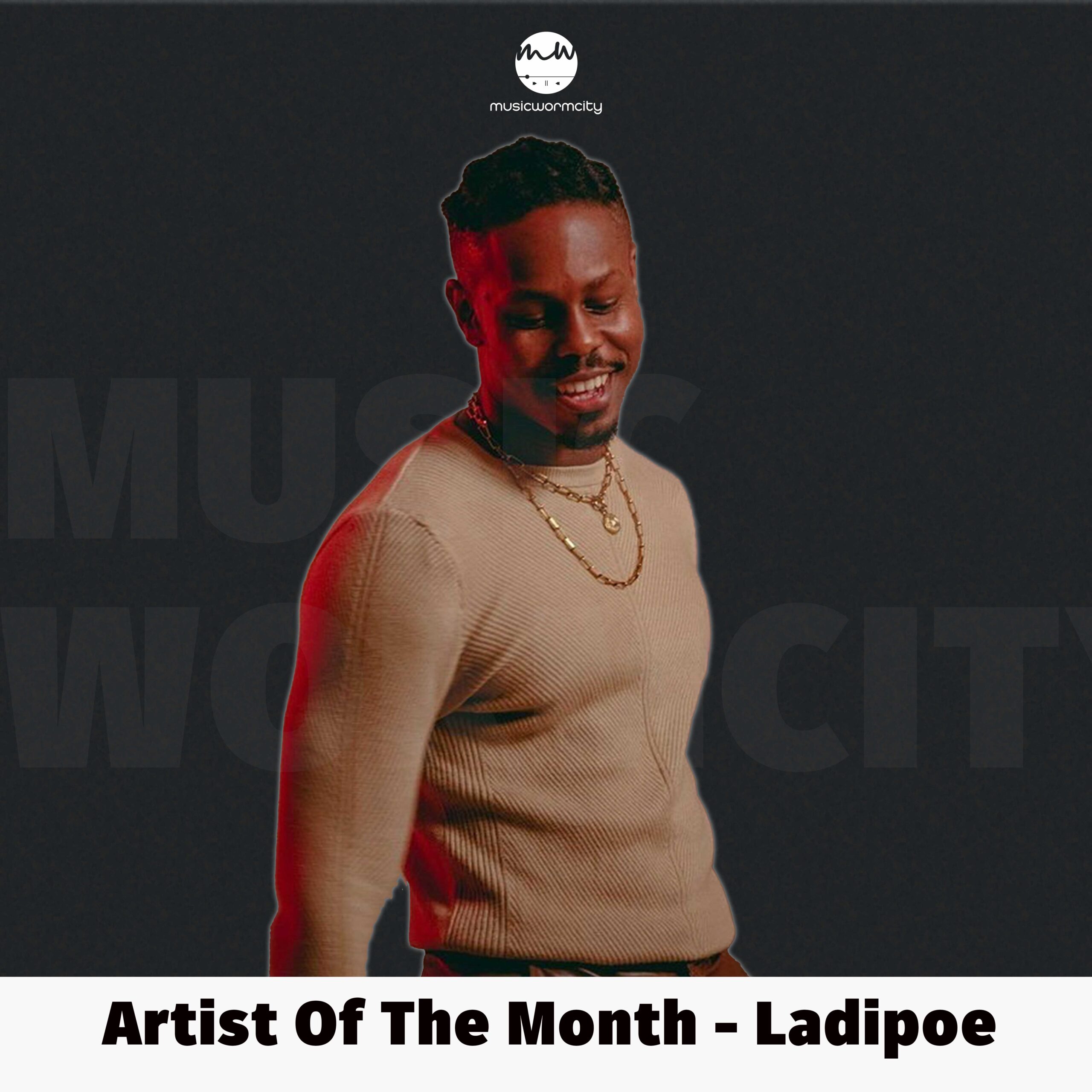

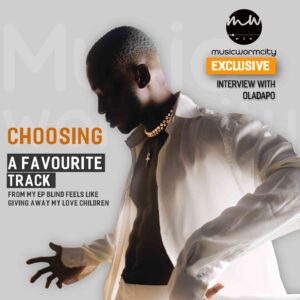

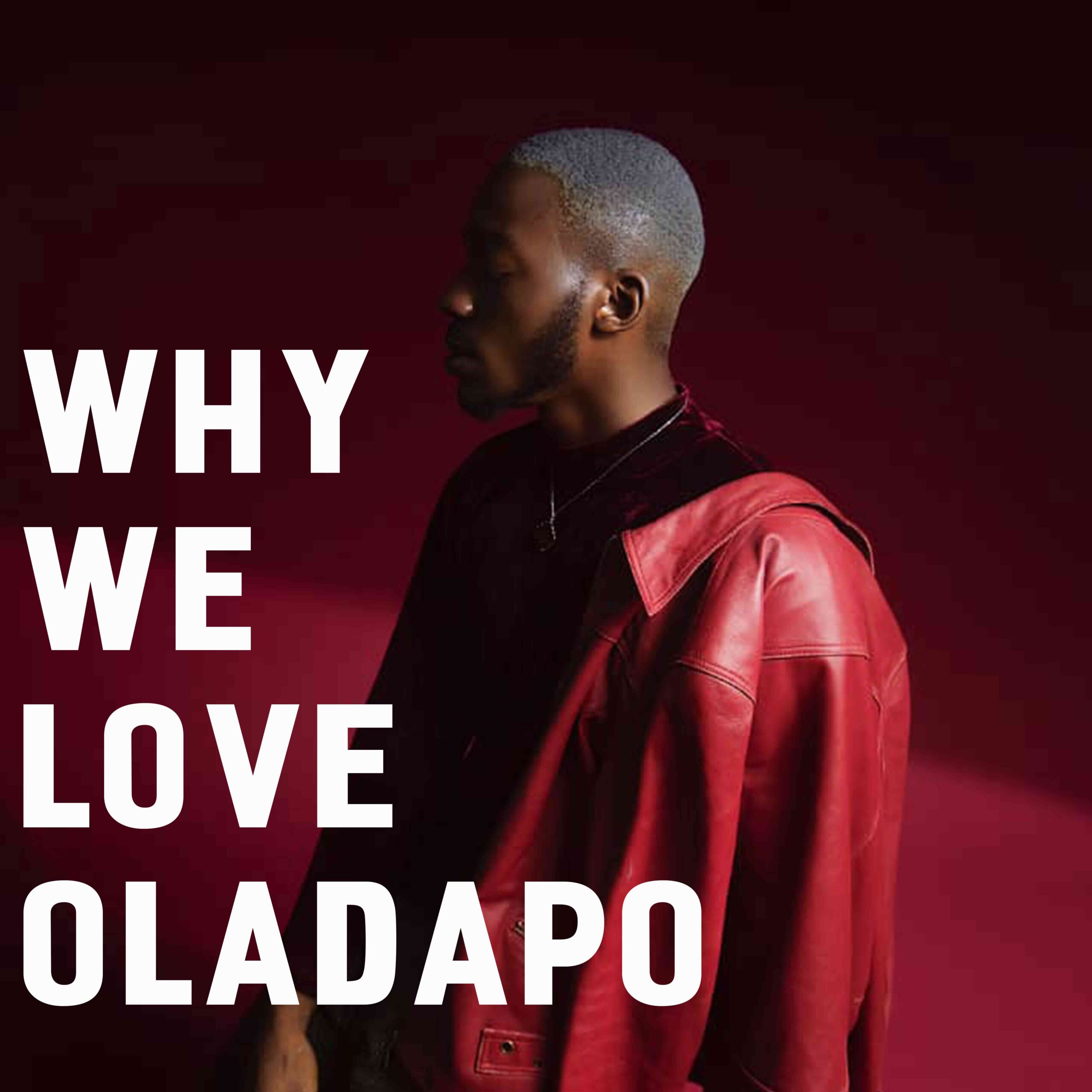
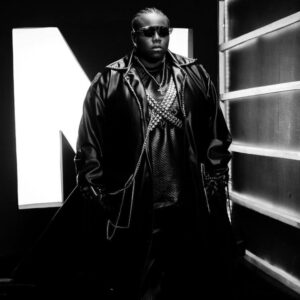
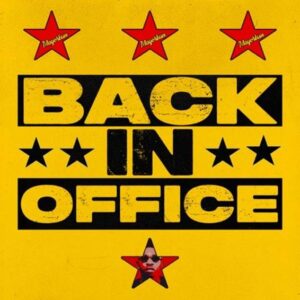

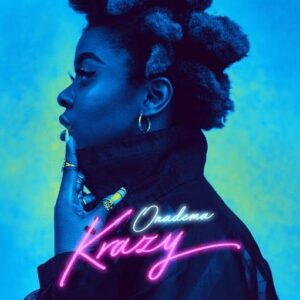
No Comments